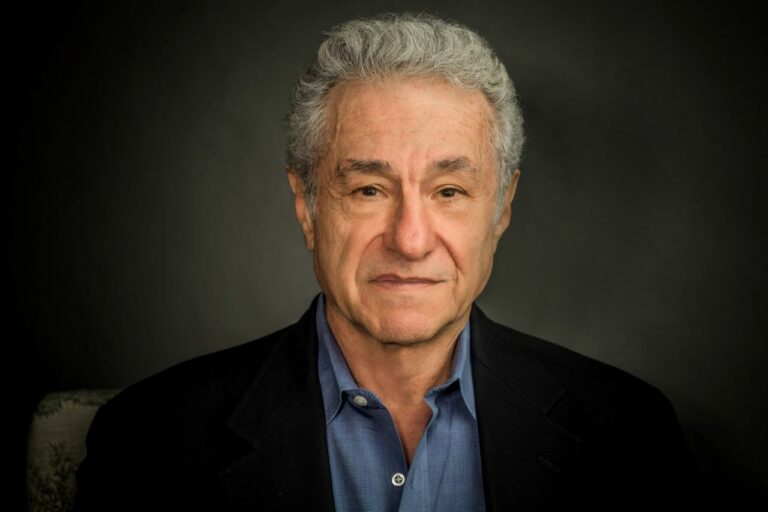In this segment of Reality Asserts Itself, Paul Jay and former CIA analyst Ray McGovern discuss the relationship between seeking to be the world’s single superpower and the resulting blowback and need to suppress dissent at home. This is an episode of Reality Asserts Itself, produced November 4, 2013.
STORY TRANSCRIPT
PAUL JAY, SENIOR EDITOR, TRNN: Welcome to The Real News Network. I’m Paul Jay in Baltimore. And welcome to Reality Asserts Itself.
On Friday, the British government let it be known that they think that Glenn Greenwald’s partner, David Miranda, when he brought documents that apparently are the several thousands of NSA-related leaked documents into the U.K., that he was a terrorist. Get this. Reuters reports the U.K. government has released official documents saying that David Miranda, Glenn Greenwald’s partner, who was detained at Heathrow Airport in August, participated in espionage and terrorism by carrying documents from Ed Snowden. The document named the “Ports Circulation Sheet” states: “Intelligence indicates that Miranda is likely to be involved in espionage activity which has the potential to act against the interests of U.K. national security.” It goes on, “We assess that Miranda is knowingly carrying material the release of which would endanger people’s lives.” “Additionally the disclosure, or threat of disclosure, is designed to influence a government and is made for the purpose of promoting a political or ideological cause. This, therefore, falls within the definition of terrorism. . . .”
It seems to me then every lobbyist on Capitol Hill could be called a terrorist, and I suppose there over the years many people have thought exactly that.
At any rate, here to talk about that and more about Edward Snowden and Glenn Greenwald and the NSA leaks and joining us in the studio is Ray McGovern. He’s a former CIA analyst and now a political activist who currently works for Tell the Word, a publishing arm of the Ecumenical Church of the Savior in inner-city Washington. During his career as a CIA analyst, he prepared the presidential daily briefing and chaired the national intelligence estimates. Ray was also instrumental in founding the Sam Adams Associates for Integrity in Intelligence. And he’s a co-founder of Veteran Intelligence Professionals for Sanity.
And thanks for joining us.
RAY MCGOVERN, RETIRED CIA ANALYST: You’re welcome, Paul.
JAY: And you were just in Russia. You just got back a couple of weeks ago. You gave Ed Snowden the Sam Adams Award for this year.
MCGOVERN: We did indeed.
JAY: So, I mean, quickly, why? And then let’s get into some of your interaction with him.
MCGOVERN: The award is given for a whistleblowers primarily, but also officials who make it unnecessary for whistleblowers to appear. Our last award was in January for Thomas Finger, an assistant secretary of State who did the honest estimate on Iran, which played a huge role in preventing war against Iran during Bush and Cheney’s last year in office. This time, Edward Snowden won it hands down. Well, I shouldn’t say hands down. In our group, there are some people that still think that maybe Ed Snowden didn’t do the right thing. But we had a clear majority for giving him the award, and because of his integrity, because he was able to put his own personal welfare and his own personal safety behind his constitutional duty to protect and defend the Constitution as we all swore to do. So that was a big deal.
JAY: So let me go back to my introduction. David Miranda, Glenn Greenwald’s partner, the British government is now accusing them of essentially being a terrorist. They actually use those words. You could then extend that to Glenn Greenwald himself. What they’re doing now is not only fingering the person who does the leaks, but they’re fingering journalists. They’re essentially criminalizing journalism.
MCGOVERN: Why did they call Miranda a terrorist? Shock value, pure and simple. Now, in the Third Reich, they could have just blown up all those books. No, they chose to burn them. Okay? They could have just ignored the MacBook Pros because they didn’t have anything on it. No, they chose to sledgehammer them. Okay? This is all a very draconian sort of on-steroids effort by the British government to go one better from the United States. They don’t have a First Amendment. They can do what they want.
JAY: If you use the word terrorist, you by implication say, all of your constitutional, legal protections and rights are now out the window, because once you’re called a terrorist, we can do what we like with you.
You had an exchange with Snowden when you were in Moscow–I’m assuming. Was this Moscow? Do we know?
MCGOVERN: It was Russia.
JAY: It was Russia. Okay.
MCGOVERN: There was another point where I said, Ed, are you aware that just four days ago the former head of the CIA and NSA, Mike Hayden, said that you should be–hinted broadly that you should be on the kill list that the president–.
JAY: The words of Hayden were, I think, there’s another list I think you should be on.
MCGOVERN: Yeah, another–he was referring to [incompr.] award list, the European award for the Sakharov Prize, another list you should be on. Everybody laughed. Washington Post held this cyber conference. Okay? And within a second, Mike Rogers, head of the House intelligence committee, piped up and said, yeah, I think help you with–no, not “I think”–I can help you with that, Mike.
Now, you know, this was not a meeting of the Mafia or anything. This was the House intelligence committee chair supporting the notion that Ed Snowden should be assassinated on this list that Mike Hayden knows too much about. Okay. So I said to [incompr.] are you aware of this? And he winced. You know, he said, yeah. And then, you know, I wanted to ask him, are you also aware that–or how much reassurance did you take from Eric holder’s official memorandum to his counterpart in Russia, saying that if they’d just give you up, that they wouldn’t torture you or they wouldn’t kill you? But I saw his wan smile and his wince when I talked about Rogers. I didn’t press it anymore. But, you know, that’s what he faces. And when people say, wow, wow, why didn’t he go through channels, or why didn’t he follow Drake’s example, well, they’re on a different planet. What he did was effective, and the payoff, of course, was–we said, Ed, we know you expressed your major concern when you left, when you arrived in Hong Kong, that you would have sacrificed everything, you know, everything, really, and risked your own life and nothing would happen. Are you happy now that something happened? And he smiled broadly. He said, yeah, I’m happy now.
JAY: I think there’s something that hasn’t been enough part of this discussion, ’cause we’re hearing about how powerful the NSA is and how they can listen to everything and read everything and know everything you’re doing. But to a large extent, I think this whole affair has been a sign of their weakness. Some young guy who is–what?–a security guard to begin with is able to walk away with all this stuff, expose what are some of the–you know, not quite the crown jewels, but, you know, very important secrets of the American state. He’s in a Hong Kong. And either they can’t find him, which I find hard to believe, but if they can’t, that’s kind of another sign of weakness. But in theory, they could have found him. But they actually couldn’t get him, because, one, the Americans can’t just do anything they want anymore. Hong Kong is under the–you know, is essentially a part of China. You can’t just go in and scoop somebody up if the Chinese don’t agree with it. And American public opinion would not accept killing this guy. I mean, they could have found him in Russia. Clearly, the American intelligence agencies have to have been able to follow and find him in Russia. But they can’t piss off the Russians. You know, we’re in a world now where the Russians can say no if the U.S., you know, are saying, you must hand him over. And I think they are concerned about American public opinion. If they violate either sovereignty of these countries or violate the law and just go shoot an American for this, people won’t accept it. A lot of this I think is a sign of weakness.
MCGOVERN: Well, there are two points to this. There’s one weakness that comes of depending–having to depend on 20-year-old, 30-year-old extremely technically qualified people, even if only 5 percent or 1 percent of those people have a conscience, and even if one percent take seriously the oath we all take to support and defend the Constitution of the United States against all enemies, which includes the Fourth Amendment, by the way, against unreasonable searches and seizures, you know, that amendment–I keep repeating–people don’t realize–you cannot have these searches or seizures without probable cause, without a warrant, and without the particulars of each searcher or seizure being spelled out in that warrant. There is no way that what NSA is doing internally in this country can be square with that amendment. So here’s Snowden and here are these other young people saying, you know, this is bad. You know, I know enough about American history, I know enough about European history to think, this is going to lead to a police state, and I’m part of it. And that’s precisely what he said.
Now, as far as finding Snowden, you know, the NSA is not all-powerful. You’re right about that. I’m not sure they know where he is in Russia. Okay? Now, if they did, that’s the supreme irony here, Paul. He is–despite his best intentions to get to Latin America, he is in the most safe place that he could possibly imagine, because no matter what the head of the House intelligence committee or Mike Hayden, a former director of the CIA, NSA, no matter what they might want to do with a drone strike, they ain’t going to do it in Russia, nor are they going to send in SEAL Team Six, you know, to pluck him out. So it’s a supreme irony. He didn’t intend to be there.
JAY: Okay. Let me give you the other side of the argument. I mean, it’s been hashed out, but let’s do it again. What–usually when this is posed is that there is a terrorist threat out there. Let me just add to that. There is a terrorist threat out there to a large extent because U.S. foreign policy in many parts of the world, particularly the Middle East, have created the conditions and nurtured these kinds of forces, and when they’re useful, ally with them and arm them and fund them, and then they come back and bite you.
MCGOVERN: You’re not supposed to say that, Paul.
JAY: Yeah. So given that context, yes, some pretty monstrous characters get created. And let me–I can’t even say that without adding another piece. None of these monstrous characters have killed as many people as the U.S. army have. So let’s keep in mind big–various sizes of monsters.
MCGOVERN: Proportionality.
JAY: Proportionality.
MCGOVERN: Okay.
JAY: Okay. All of that being said, there are forces out there that would like to attack civilian population in the United States. And I can’t even say this without segueing again, because they see their civilian population getting killed. Okay? The argument is: why wouldn’t you do everything you possibly could to stop it, which means, if you have to listen to everything, if you have to get metadata on everything, that you do it?
MCGOVERN: Two things, Paul. You don’t do it in the United States. The Constitution forbids it. I’m pledged to defend the Fourth Amendment. You don’t do it here in these united states. Okay?
Now, abroad? I’m an intelligence officer. I profited from, I know the value of this collection mechanism. Okay? I would never say we shouldn’t do it. But, you know, just like everything else–you know, the Greeks used to say meden agan or the Romans in medias res: nothing in excess. Virtue’s in the middle. Just because you have all the money in the world, just because you have all the technology the world to do this kind of thing, you don’t do it without adult supervision, you don’t to do without saying, well, alright, Angela Merkel’s phone? Yeah, that would be really–well, wait a second. Now, what do we expect to get? What’s she got for–what she eats with sauerbraten on Saturday night? Well, that’s what they got.
Now, this is just the latest of the abuses and usurpations vis-à-vis the Europeans. I mean, we persuaded them to go along with kidnapping. We persuaded them to go along with enhanced interrogation techniques, with black prisons on European soil. We persuaded them to do all that kind of thing. There comes a time when the Europeans will say, hey, remember what happened when that happened back in the ’30s? Maybe we ought to tell the Americans the dangers of incipient fascism–and I use the word advisedly. They know what it’s like. And I’m appealing to them in every interview I get with Europeans to say, look, you know, it’s your turn. My father’s generation drove the fascists out of Europe. Now it’s your turn to make sure that we realize what it’s like, because we don’t know, we have no sense of history. And with–.
JAY: And, of course, that’s the danger here, that if you ever reach a point in the American–you know, in a crisis in the United States that a state starts considering mass arrests, that’s where this becomes really serious.
MCGOVERN: Well, that’s what Ed Snowden called turnkey tyranny. You know? You have all the names, you have all the numbers. You want to have some tyranny, you turn the key, and you wrap up people.
When I was in Amsterdam this summer, okay (I was speaking at a hacker conference, of all things, okay?), I learned that when the Germans came into Holland, there were municipalities, towns that had copious lists of citizens, including their race and their religion. Okay? The more–what’s the word?–progressive or the more conscious people, conscientious people, destroyed those lists immediately. Okay? And the Nazis had lots of trouble rounding up the Jews in those towns. The others? Well, you know, they wanted to curry favor with the Nazis. They gave them the lists. And those Jews were immediately taken out to Eastern Europe, to the extermination–. So that’s how dangerous this thing is. It was just a reminder. That’s just Holland. But it happened.
And so we need to realize that. And we don’t really teach that in our history books. And we’re getting very close, in my view, to a situation where we have the corporations, the government, the media, the national security apparatus–who else?–oh, the Congress, they’re all kind of enmeshed in this complicit destruction of our Constitution. And when they say it’s legal to do this stuff, it was legal to do all that stuff once Hitler took over and defied the German Constitution. There was a German Constitution in those days. So it may apparently be legal, but there are millions of us, millions of us that like me took a solemn oath to support and defend the Constitution of the United States against all enemies foreign and domestic. And we mean to do that. And I think there’s an increasing consciousness that this needs to be done before it’s too late.
JAY: I mentioned at the beginning Glenn Greenwald’s partner had been called a terrorist in the U.K. And Glenn makes a very important point in one of his articles–and I think Glenn’s been very brave not only in how he’s reported on all this, but also in terms of how he’s followed up and analyzed the situation–but how much of–. A recent–a poll that came out a couple of months ago shows now that a majority of Americans think that the government’s going too far in terms of invading people’s privacy. About the same number think that Snowden’s a whistleblower and deserves protection as think he’s a traitor. But Greenwald has pointed out that people that identify as moderate or conservative Democrats actually support the NSA more than many Republicans and certain libertarians and liberal Democrats. But it’s the core base of Obama supporters who are–been the most vigorous in supporting the NSA and President Obama on all this intelligence gathering. And what do you make of this kind of specific role that Obama and that section of the Democratic Party has played in helping get kind of liberal opinion that in theory would have been against all this on board?
MCGOVERN: It’s unconscionable and it’s real. Okay? I’ve learned a lot over the last decade, and that is politics overcomes all other considerations. When John Conyers refused to impeach President Bush, that to me was the key point, because once they decide to go along with that out of the provincial aim to win big in the next election, which they did, you know, once you make compromises like that, once you defy the Constitution of the United States, which provided that he should be impeached–and I told John Conyers, I said, person-to-person, you know, you’re responsible. Why don’t you do it? And he says, because we won’t win as big in November. That’s what he said. So once people don’t take their constitutional duty seriously, as some of us are, then it’s a slippery slope.
JAY: Alright. Thanks for joining us, Ray.
MCGOVERN: You’re most welcome, Paul.
JAY: And join us for part two of our discussion with Ray, where we’re going to pick up on the issue of the whole philosophical, ideological basis of U.S. foreign policy. Can you have a foreign policy as such and have constitutional rights at home?
Please join us for the next part of our series of interviews with Ray McGovern on Reality Asserts Itself on The Real News Network.






